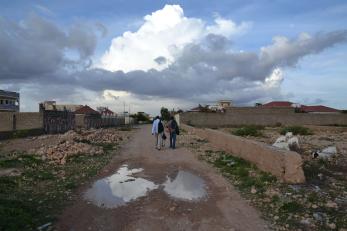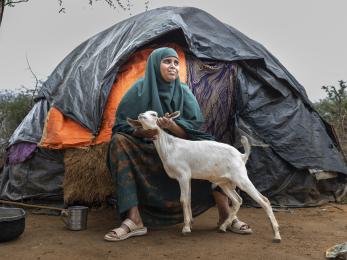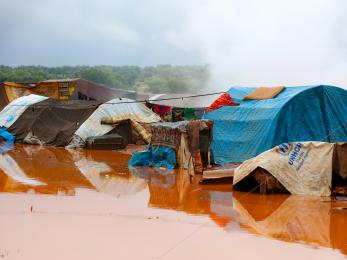Addressing the Climate-Conflict Nexus

Increasingly, researchers, implementers, and policymakers recognize the potential of climate change exacerbating and increasing conflict, while acknowledging that this phenomenon is complex and context-specific. This challenge is particularly pronounced in fragile and conflict-affected situations, which are simultaneously at risk of greater climate impacts and unable to adapt or mitigate them, compounding existing risk factors for instability and violent conflict. Though there is growing awareness of the climate-conflict nexus and its challenges, how to respond is less clear.
For over a decade, Mercy Corps has been working in places like Colombia, Nigeria, Mali, Somalia, Myanmar, Iraq, Uganda, and Afghanistan, building resilience to climate change, conflict, and other risk factors, to help communities achieve their long-term development goals. Our programming approach for addressing the intersections between climate and conflict consists of three components:
- Supporting good governance to strengthen social cohesion, peace, and climate resilience
- Strengthening community-level natural resource management institutions to manage competition and reduce conflict
- Encouraging diverse, climate-smart livelihoods that reduce the intensity of competition over natural resources
At the same time, we have outlined a research agenda to fill knowledge gaps and support evidence-based, context-specific strategies to strengthen community adaptation and resilience to climate shocks.
This paper draws on research and Mercy Corps’ broad and diverse experiences working at the nexus of climate change and conflict, and provides knowledge and evidence-based insights for driving this work forward. We conclude the report with future directions and policy recommendations, including:
- Increase funding from bilateral and multilateral donors and national governments for climate change adaptation and disaster risk reduction, particularly in fragile and conflict-affected situations
- Ensure adaptation interventions are conflict-sensitive, build resilience, and are informed by good governance principles
- Ensure peace-positive climate adaptation funding reaches those who need it most, via effective, locally led processes
- Civil society actors and donors must intentionally bring the peacebuilding community into conversations on climate finance and fragility
- Multi-mandate organizations must facilitate collaboration across the humanitarian-development-peace-climate nexus in fragile contexts with the buy-in and support of donors


